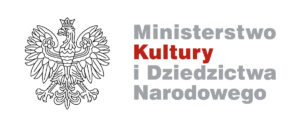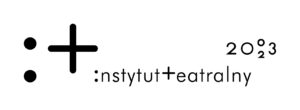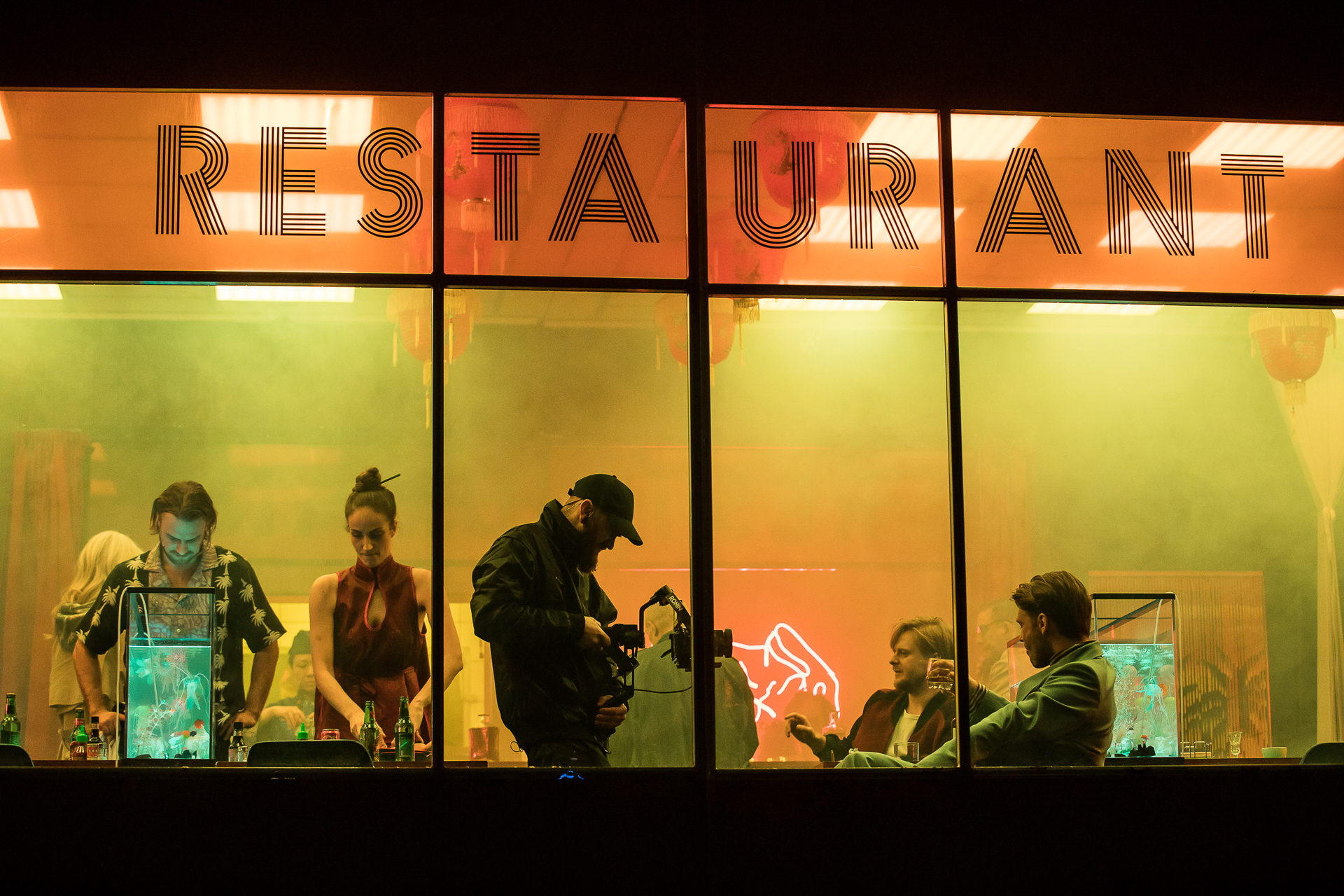
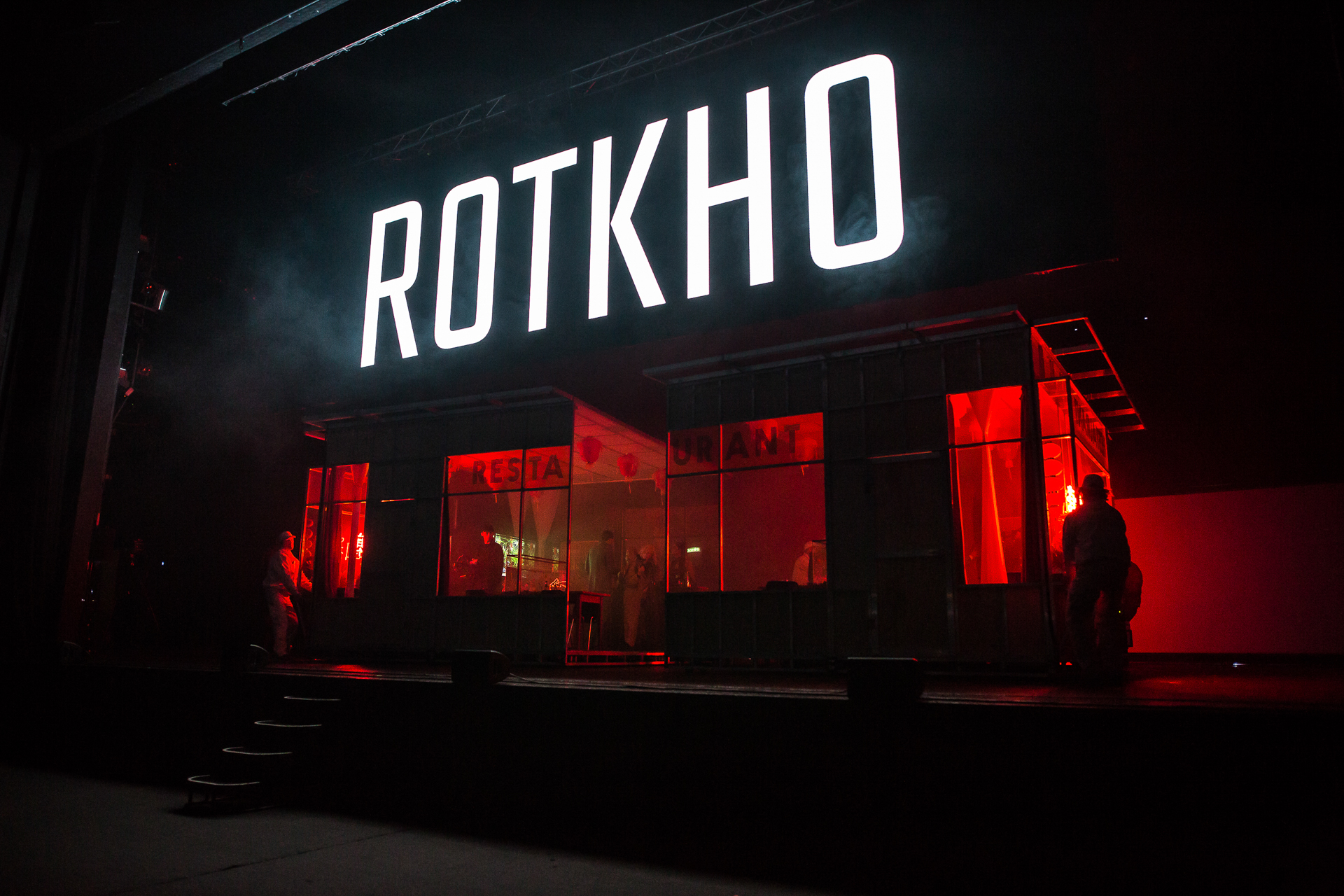
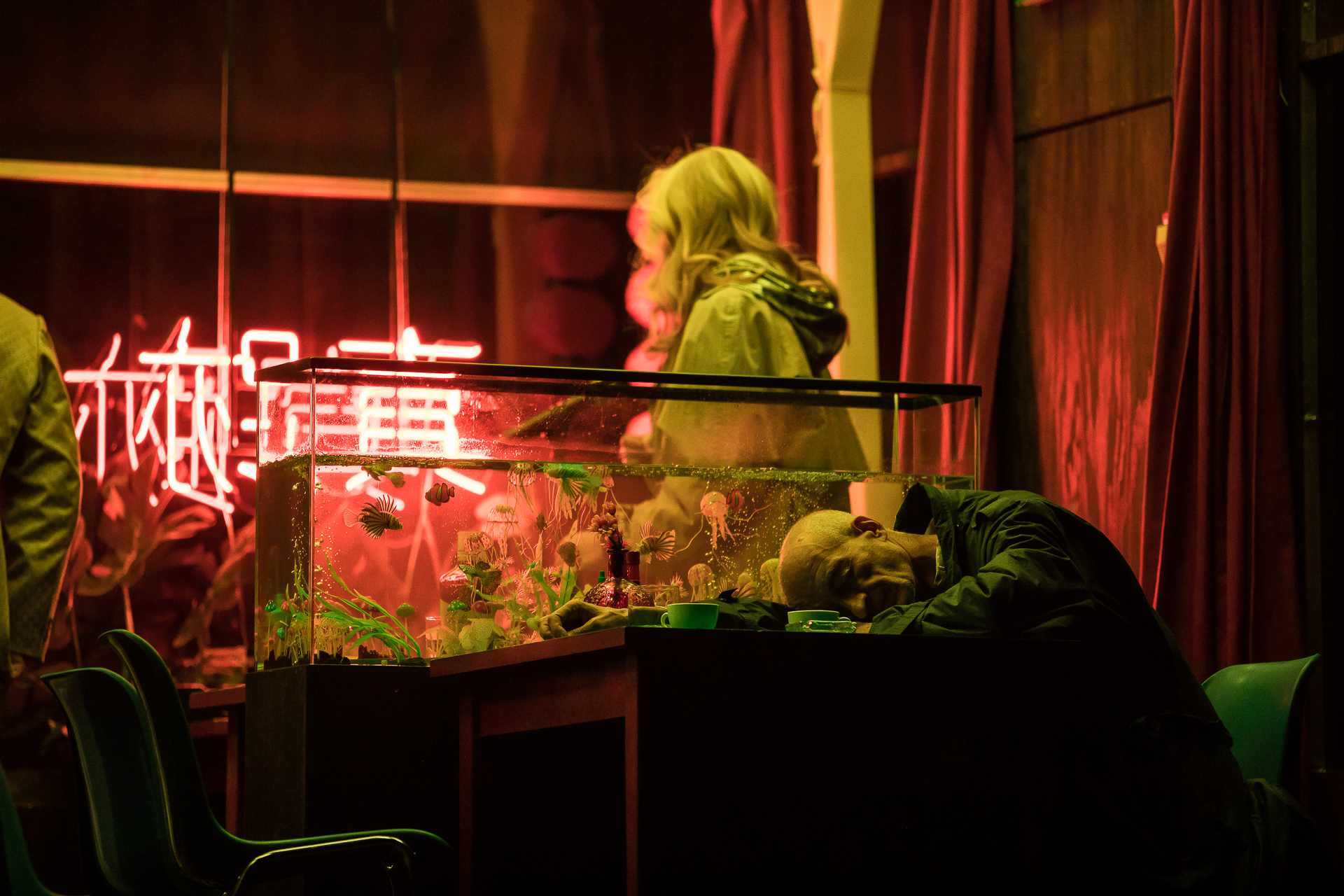
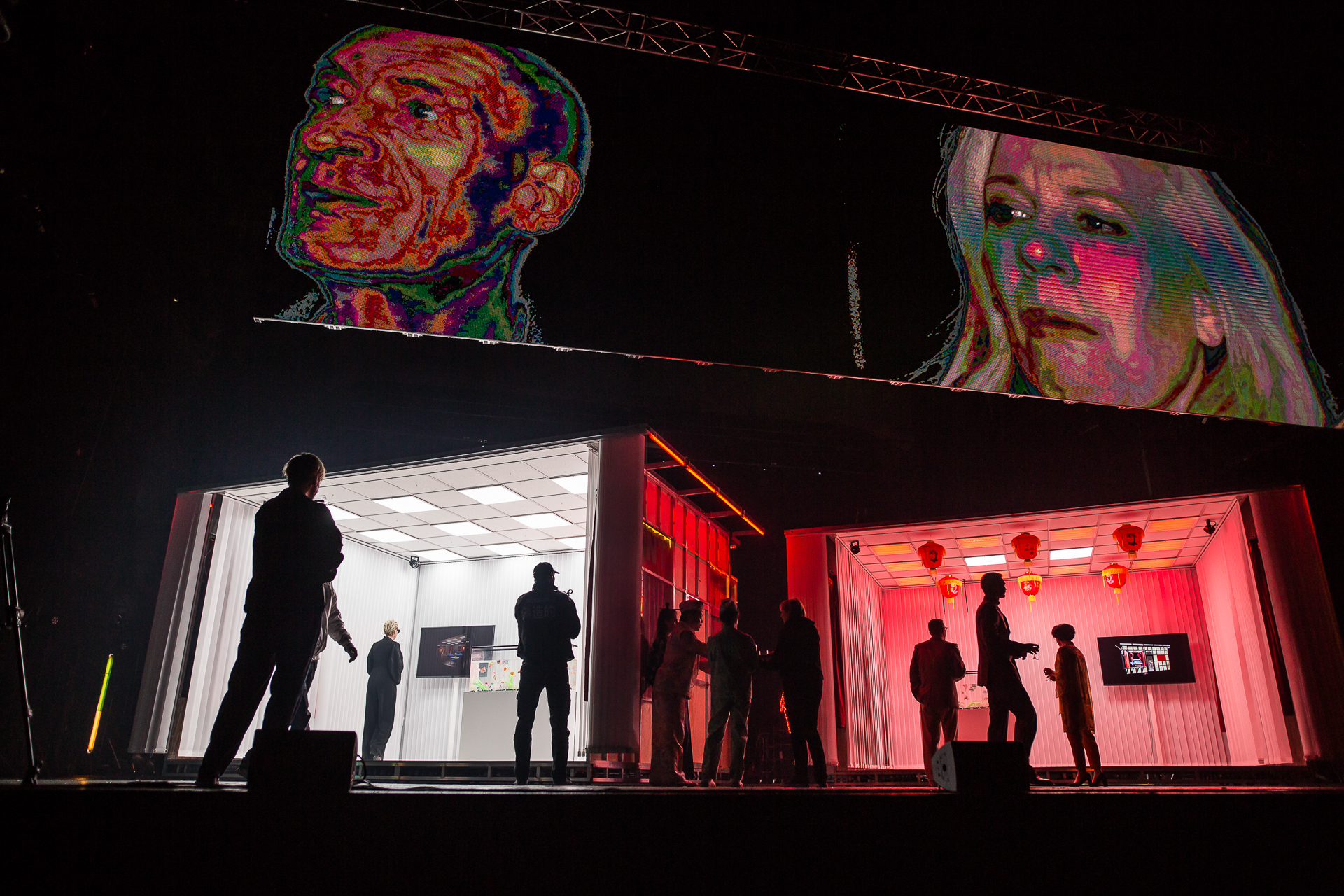
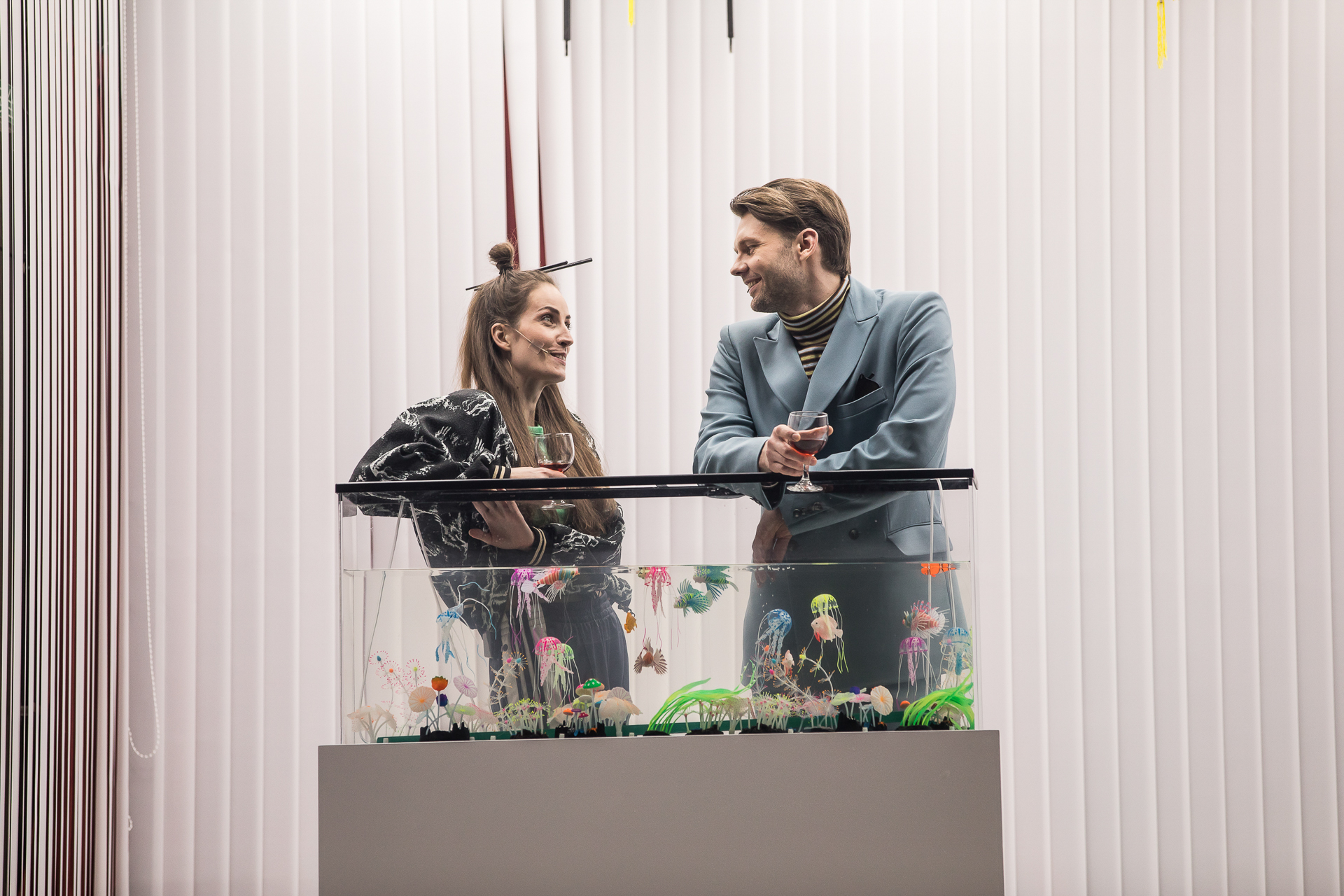
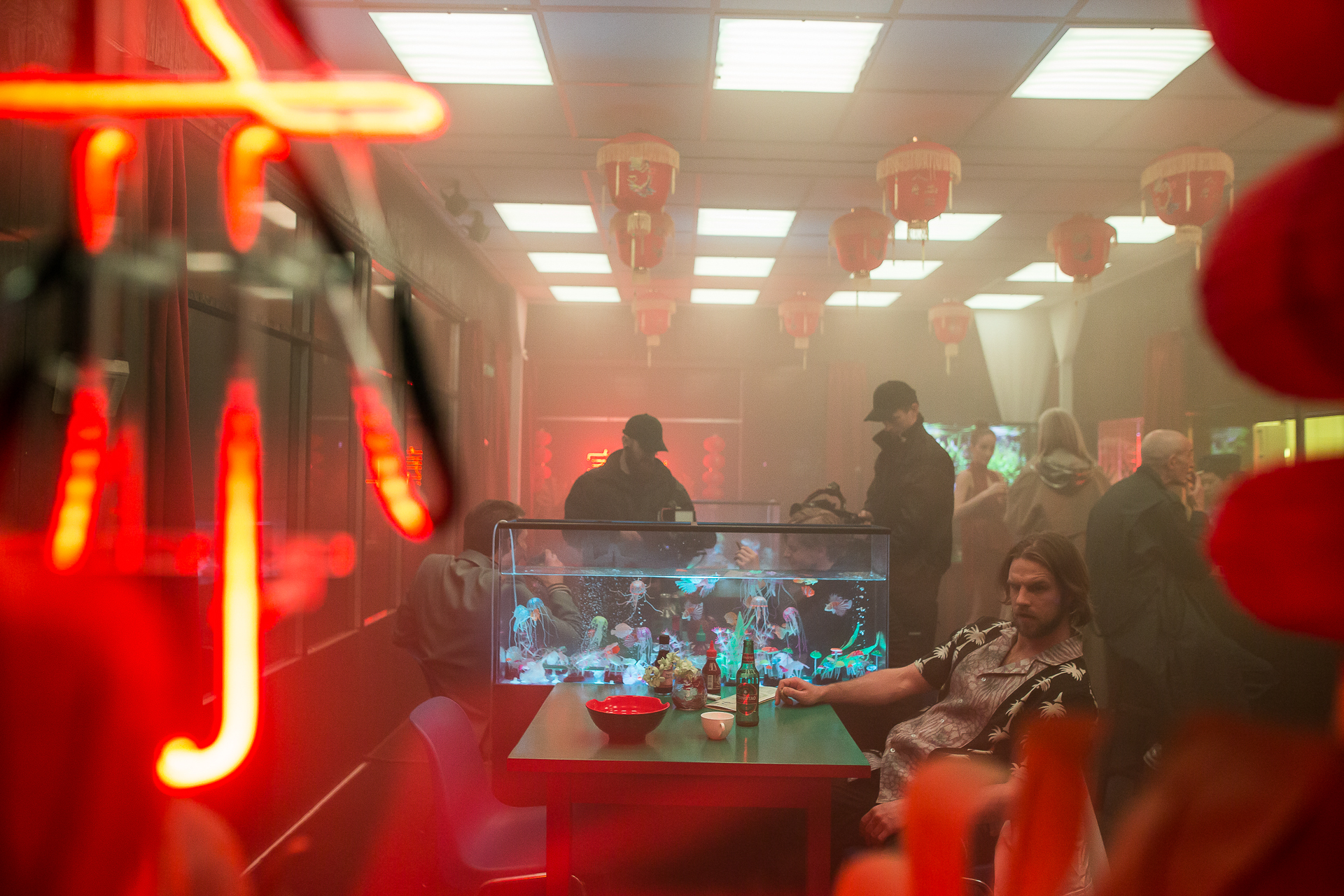
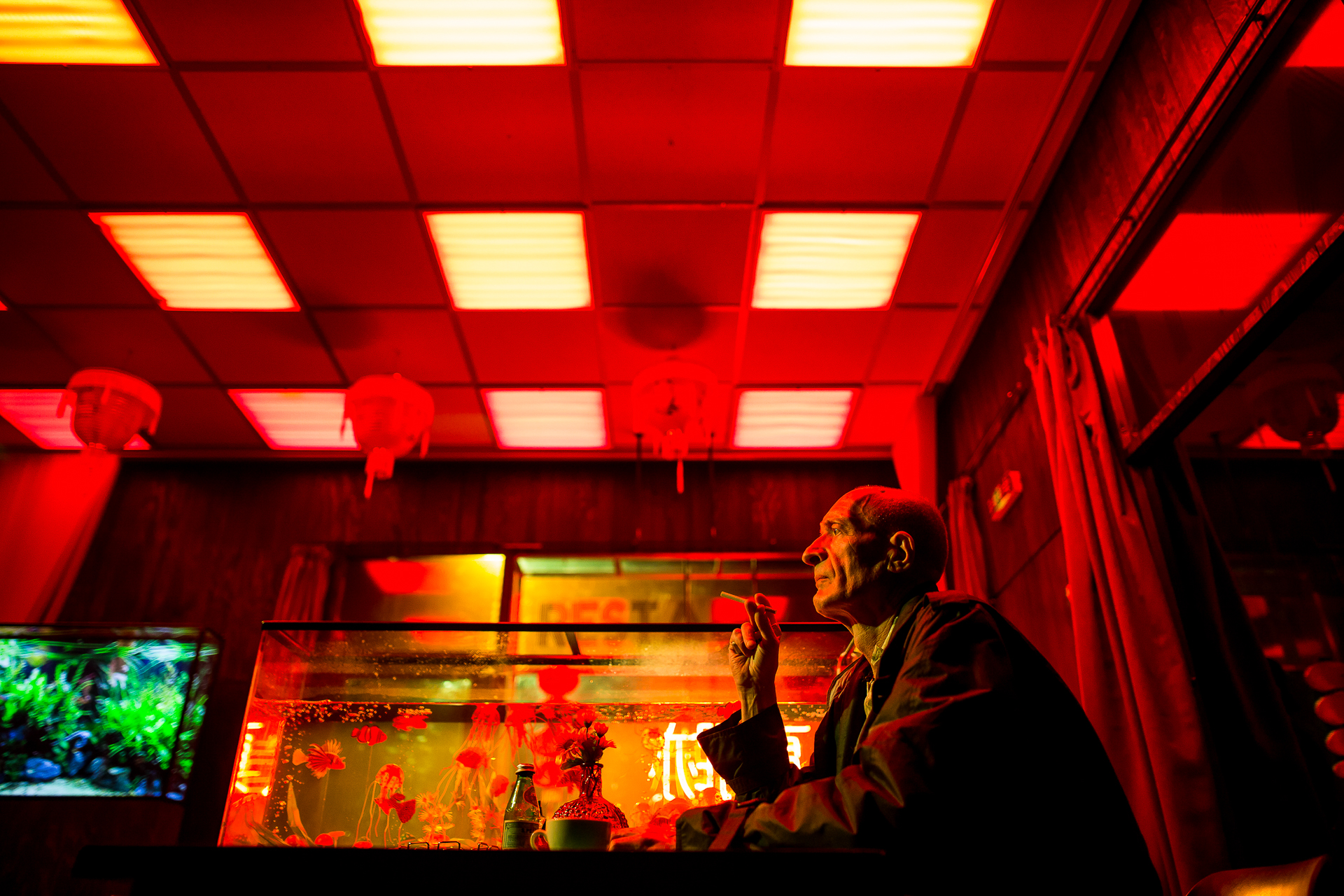
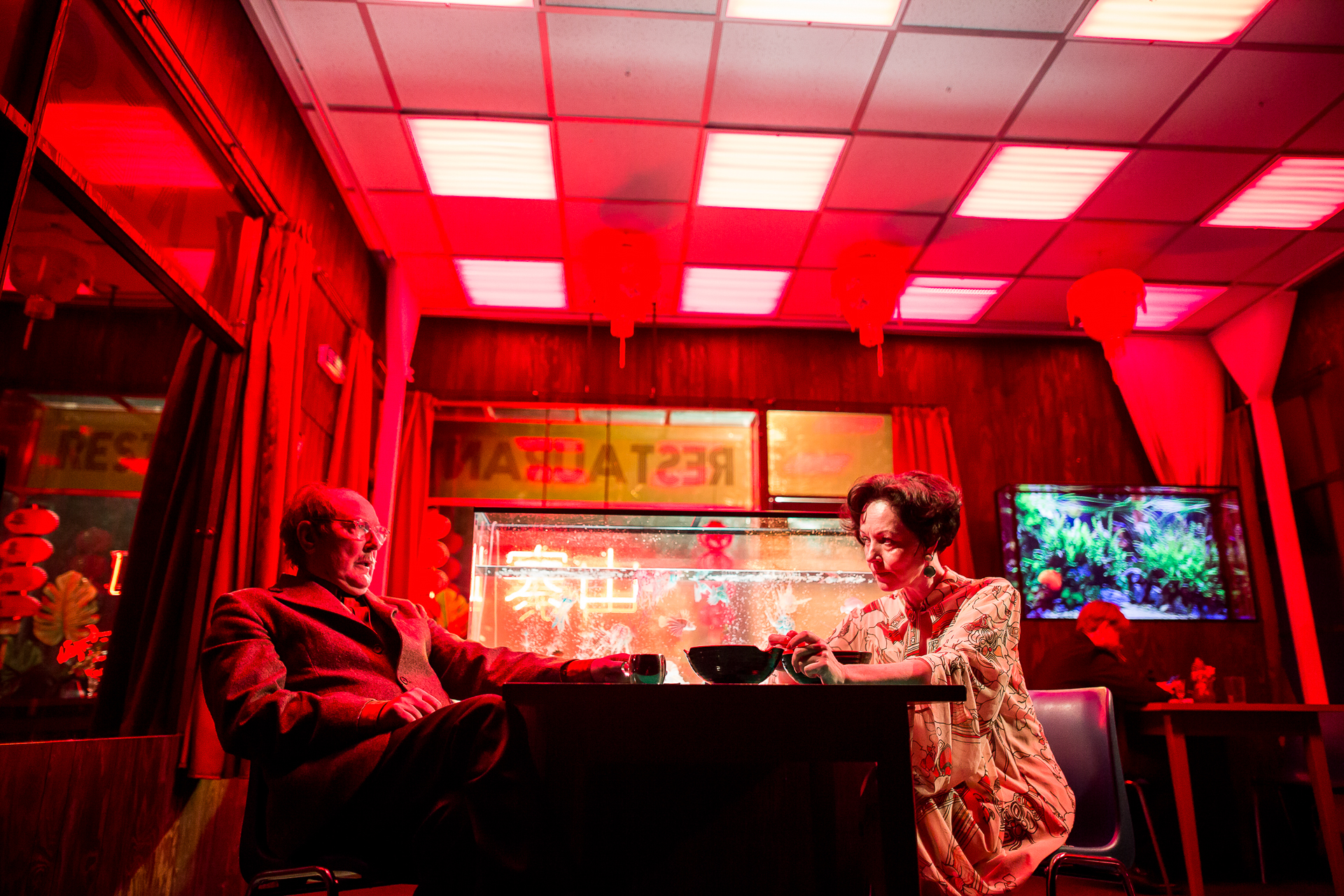
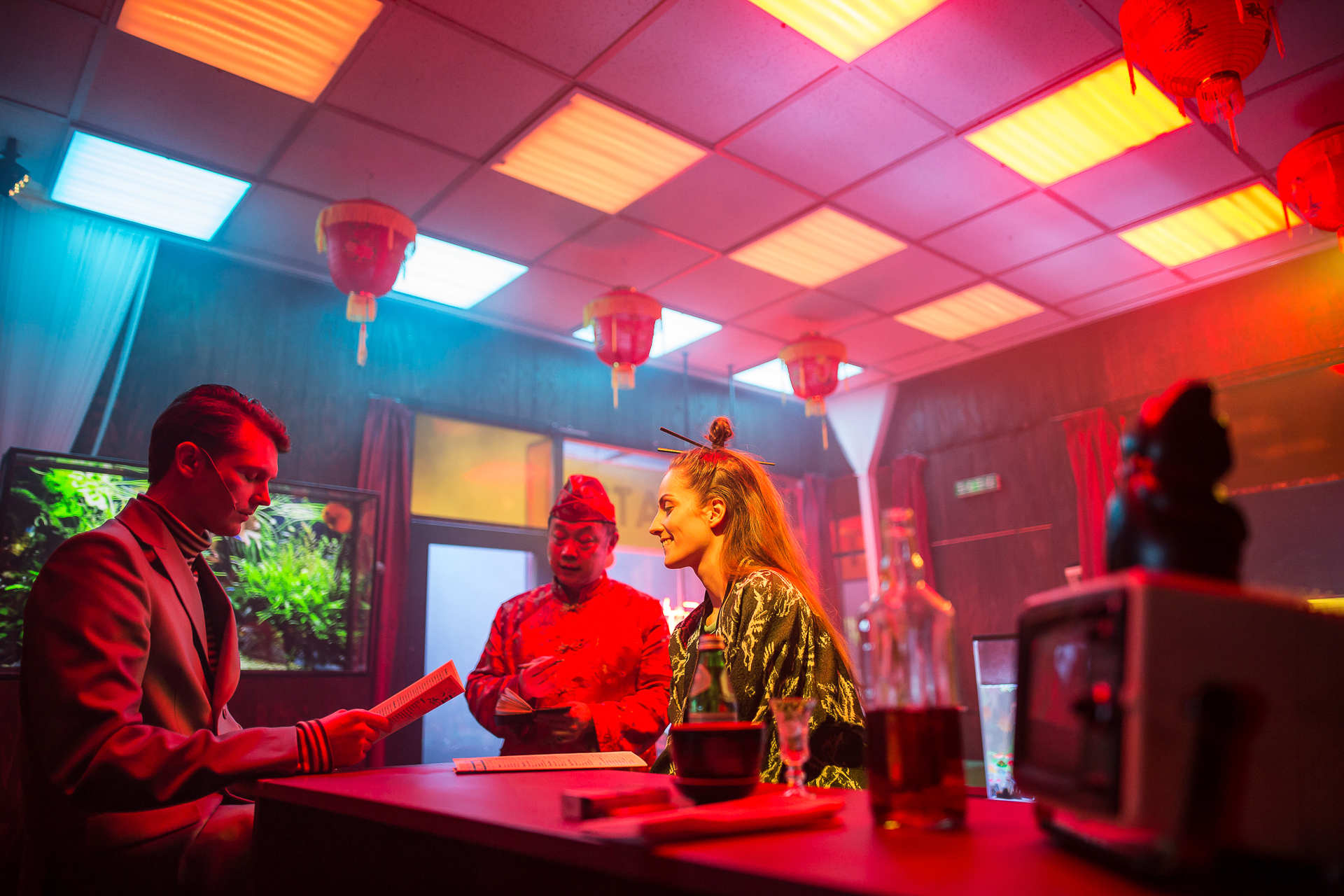
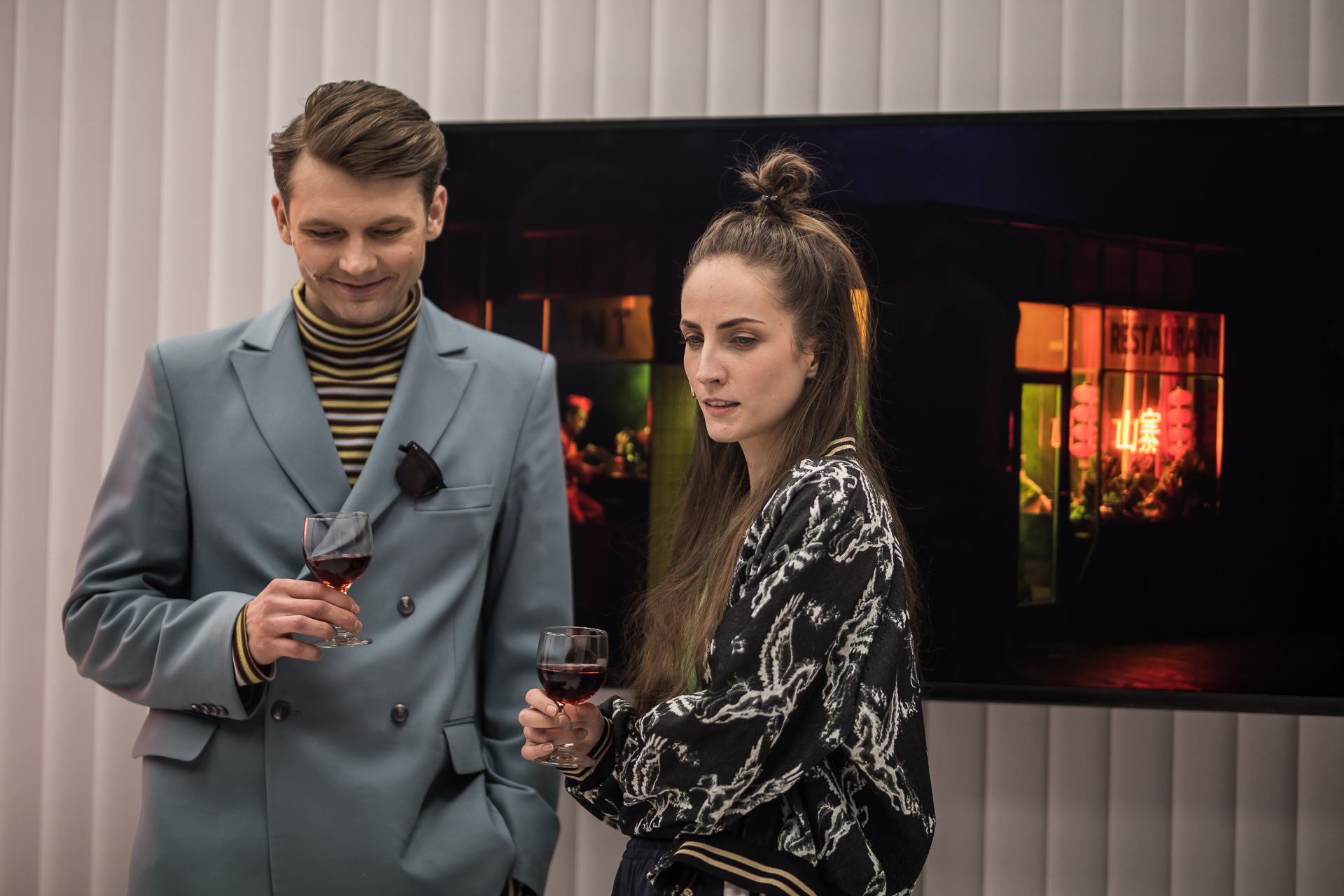
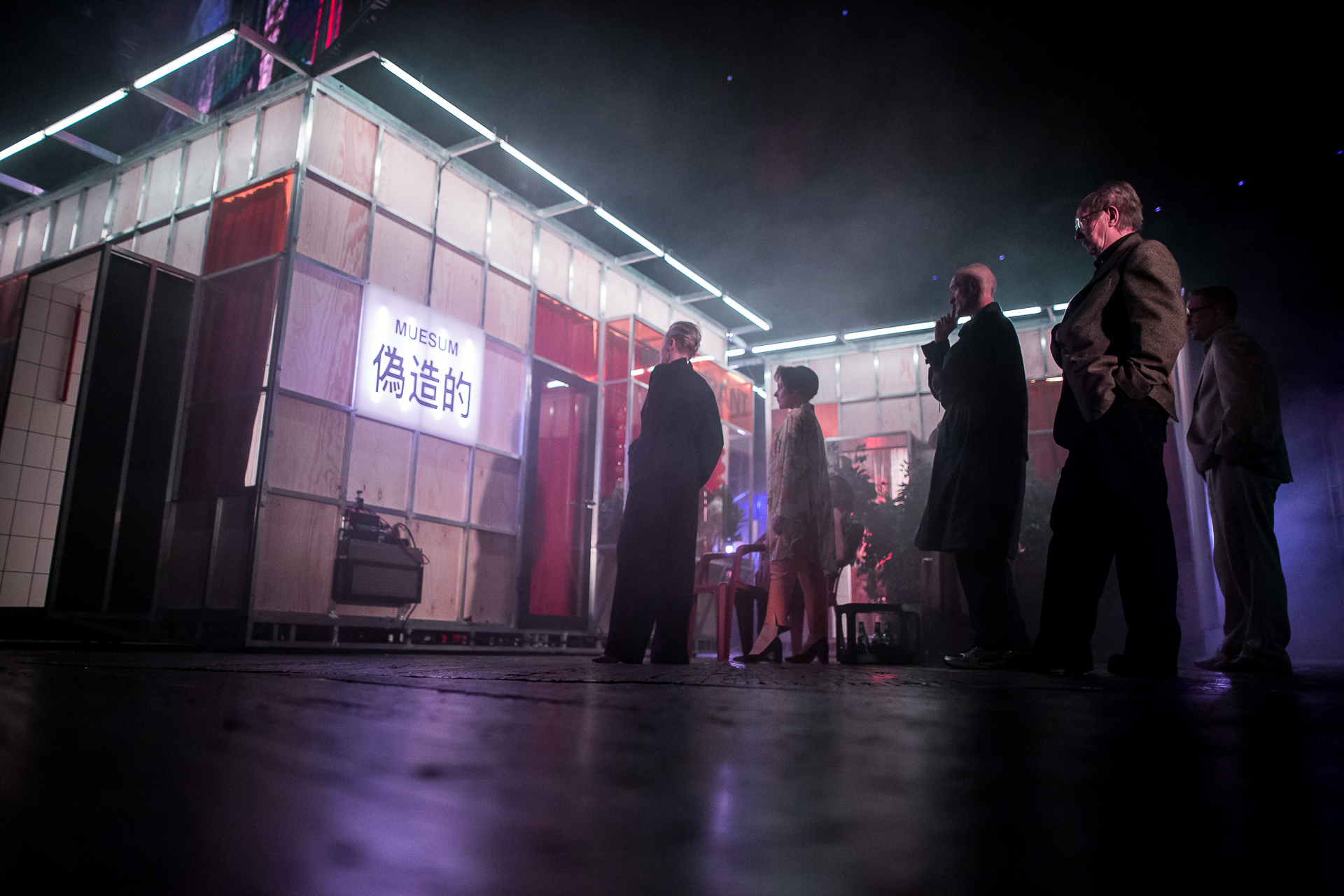
Photo: Arturs Pavlovs / Dailes Theatre in Riga
Rohtko
In 1999, New Scientist magazine argued that written text can be understood even if we rearrange the letters inside a word, as long as the first and last letter remain in their places. However, this little vocabulary twist, visible in ROHTKO at the level of the title, sets the wider horizon of the difficult relationship between reality and fake. For can a faked image evoke real emotion? Or is it possible for an original painting to cause only fake emotions? What determines the value of art? Can good art be cheap? What is good art? What is art? And what is it for?
Alternative answers can be sought in the Chinese concept of shanzhai, as written about by cultural theorist Byung Chul Han, which negates the arbitrary division between copy and original. In the art world and the world in general. The answer can be sought in the Chinese concept of shanzhai, which cultural theorist Byung Chul Han wrote about, and which negates the arbitrary division between copy and original. In the art world and in the world in general. A division that assumes that the original is the original residual of truth, value and uniqueness and that the copy is a worthless entity, a simulacrum, a fake. Chinese thought leads in a different direction – close to the one that Rothko’s thought paradoxically hooks us on – a painter who did not paint a picture that sold for $8.5 million.
A painter who said that if something is worth doing once, it is worth doing many times. And who hated the marketisation of art while being the best-selling contemporary painter.
One of the artists associated with the Fluxus group – Robert Filliou – once said that art is whatever the artist calls art. Except that the market dictates different terms today – art tends to become what the curator / gallerist / collector / influencer / NFT creator / businessman / buyer will call art. But there is also a more counter-cultural conception of art, according to which art is an experience involving an encounter between the living body and the world.
The world of ROHTKO raises questions about the relationship between the original and the copy, the real and the virtual, between ‘vividness’, mediation and representation. The materiality that characterises the traditional world of visual arts meets here with the cinematic record of reality and the virtual world, and collides with the transience of performance and the mortal nature of theatre, in which – like the human body – death is inscribed.
“The premiere of ROHTKO finally broke the boredom that permeated the Polish theatre with the onset of the pandemic.”
Dorian Widawski, Szum Magazine
dailes THEATRE IN RIGA (LATVIA)
PREMIERE
12th march 2022
JAN KOCHANOWSKI THEATRE IN OPOLE
PREMIERE
9th april 2022
Scene
The Large stage
Duration
220 MINS + interval
Suggested age
+16
Please note that strobe lights and loud music are used in the performance and cigarettes are smoked on stage.
The play will be performed with Polish subtitles.
Kiedy gramy?
09.09. / poniedziałek
19.00
09.09. / poniedziałek
19.00
09.09. / poniedziałek
19.00
“Spectacular as a Rammstein show, inspired by Lupa theatre and cinema such is the megaproduction ‘Rohtko’ by Łukasz Twarkowski”.
Jacek Cieślak, Rzeczpospolita
“That’s the kind of theatre I’m looking for, focused on the visuals, on the experiential experience conveyed to the audience.”
Michał Krawczyk, Przegląd Bałtycki
“ROHTKO has to be taken apart to see the full value of this – very well conceived, attractive and mesmerising – stage show.”
Anna Pajęcka, CzasKultury.pl
„Takiego właśnie teatru szukam, skupionego na plastyce, na empirycznym doświadczeniu przekazywanym widzowi”.
Michał Krawczyk, Przegląd Bałtycki
„(…) potrafi rozśmieszyć, a nieraz też skłonić do refleksji. Działa jak dobrze skrojone kino gatunkowe, z rozwiązaniami z którymi teatr, moim zdaniem, mógłby częściej eksperymentować”.
Henryk Mazurkiewicz, teatralny.pl
Awards and Festivals
PREMI UBU 2024 – for the best foregin production presented in Italy.
Grand Prix “Golden Pocket” at the 7th edition of the Scenography and Costume Festival “Stage under Construction” (pl. “Scena w Budowie”) – for the skilful use of visual, theatrical and interdisciplinary means, building up a picture of the world of contemporary art and the position of the artist in society.
Latvian Theatre Awards „Spēlmaņu nakts”
- Best Performance
- Special Prize „Innovation”
- Best Director — Łukasz Twarkowski
- Best Set Designer — Fabien Lédé
- Best Supporting Actress — Vita Varpina
16th Gdynia Drama Award
- Main Award — Anka Herbut
Divine Comedy Festival – International Theatre Festival, 15th edition (2022), Cracow, Poland
creators
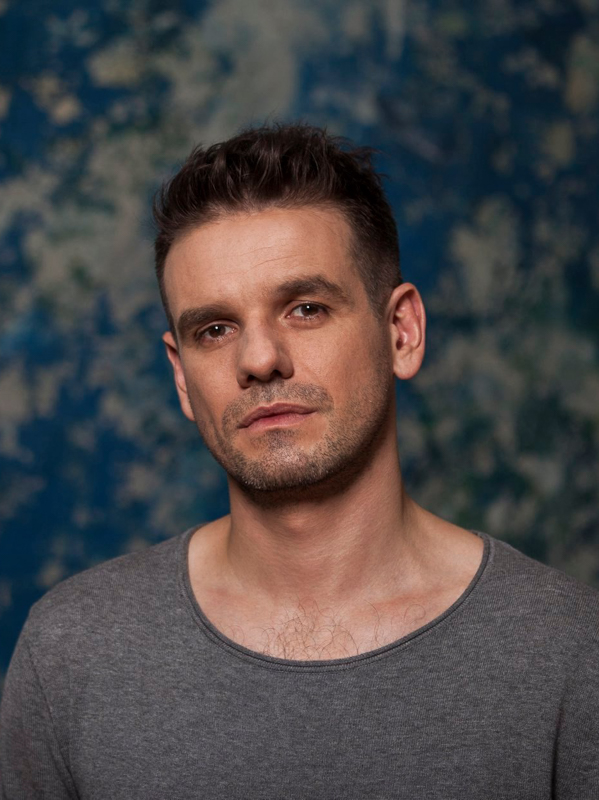
Direction
Łukasz Twarkowski
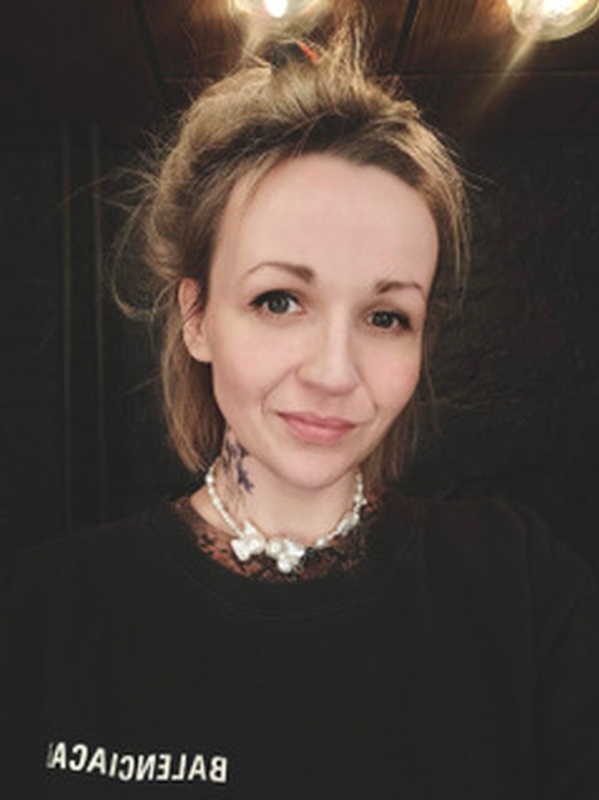
Text and Dramaturgy
Anka Herbut
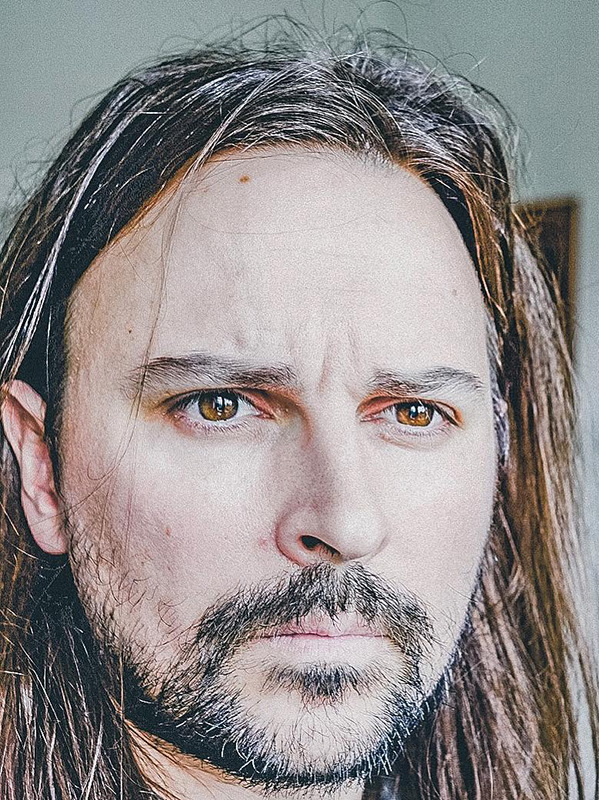
Set Design
Fabien Lede
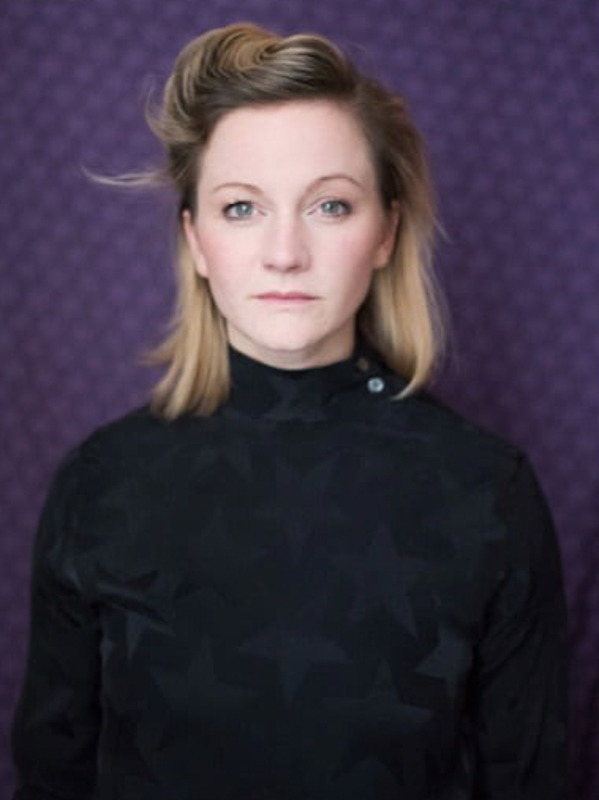
Costume Design
Svenja Gassen
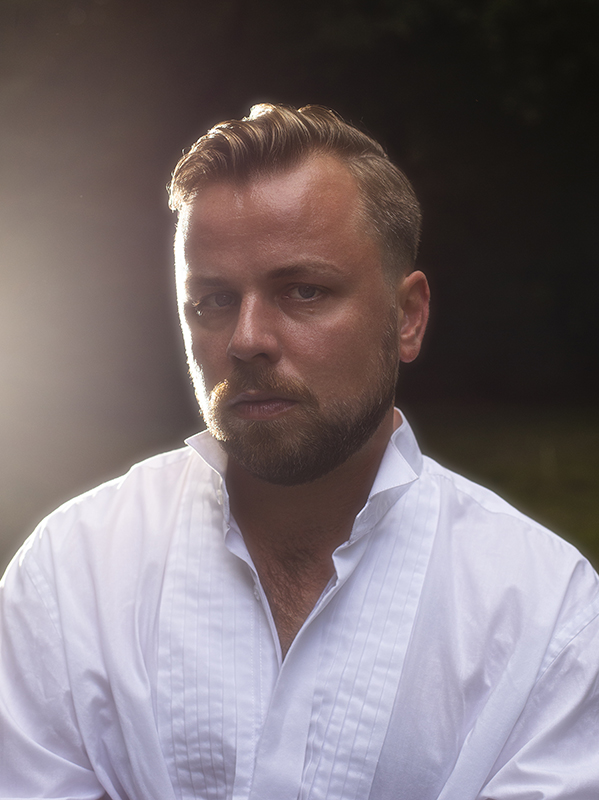
Choreography
Paweł Sakowicz
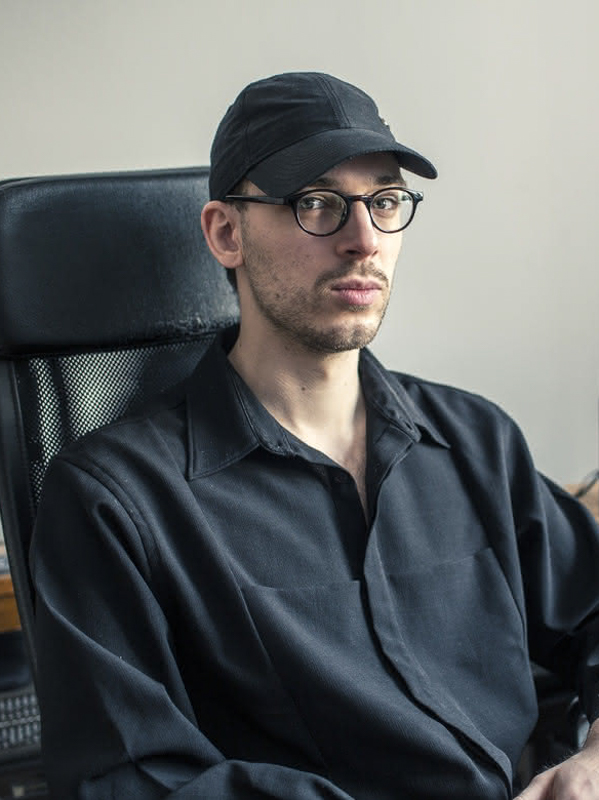
Music
Lubomir Grzelak
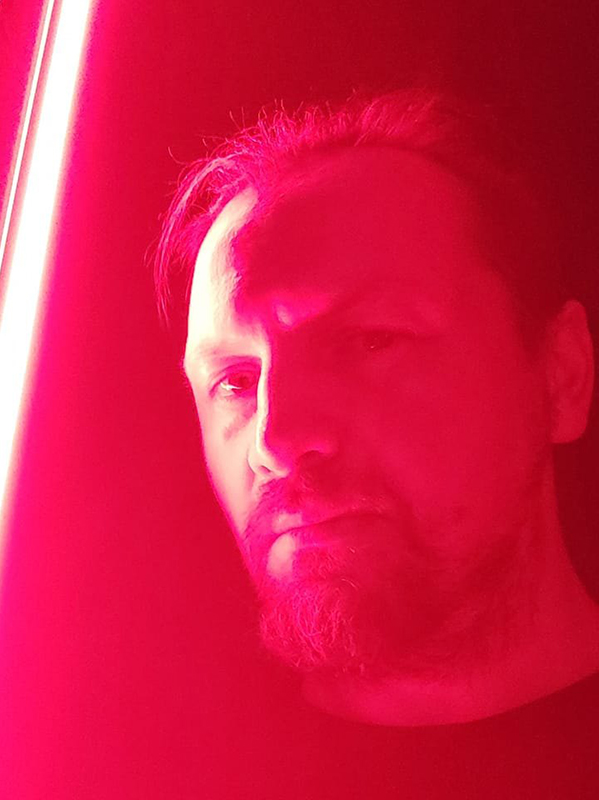
Video
Jakub Lech

Lighting Design
Eugenijus Sabaliauskas
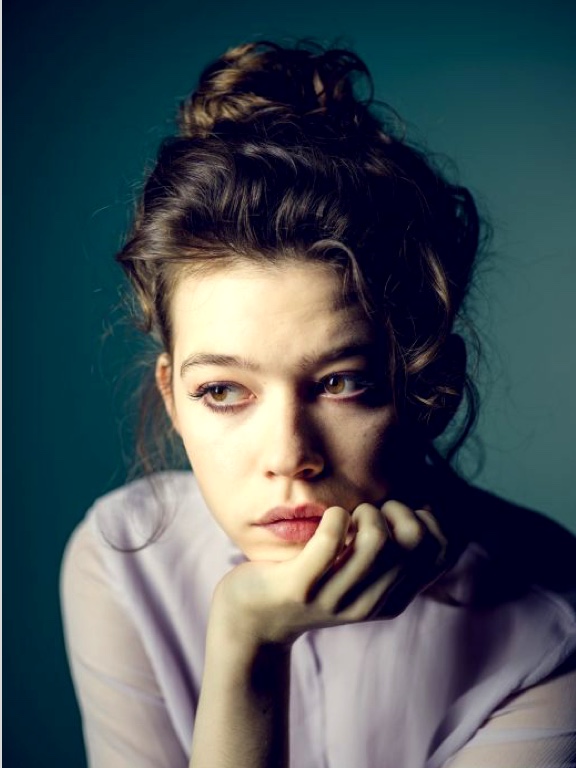
Reżyseria światła
Wojciech Gieroń

Asystent reżysera
Magdalena Maścianica
Assistant Directors
Mārtiņš Gūtmanis
Diāna Kaijaka
Adam Zduńczyk
Costume Designer’s Assistant
Bastian Stein
Video Assistant
Adam Zduńczyk
Camera operators
Arturs Gruzdiņš
Jonatans Goba
Sound and Video Development
Uldis Grass
Didzis Cielava
Māris Butlers
Maciej Przybylski
Konrad Stempień
Prop Managers
Zenta Boboviča
Annika Auziņa
Halina Rimpler
Wardrobe Mistress
Gabriela Niekrawiec
Lights Development
Dainis Sumišķis
Arnis Odnakišs
Kristaps Kukša
Tomasz Ordaszewski
Jan Pydych
Stage Management
Mārtiņš Vilumsons
Rūdolfs Štrāls
Valters Zeltiņš
Ignats Rogozins
Pāvels Busigins
Roberts Rudzītis
Dāvis Rābants
Jānis Jugno
Mārtiņš Solovjovs
Grzegorz Romanowski
Zbigniew Kuleczko
Arkadiusz Kulasza
Alexander Wodecki
Piotr Kajdrys
Script Translation
Ingmāra Balode
Translators at Rehearsals
Diāna Kaijaka
Elza Marta Ruža
Stage Coordinators
Indra Laure
Iveta Bosa
Urszula Kraska
Producer
Ginta Tropa
Curatorial Cooperation
Michał Rogulski
Reżyseria
Jędrzej Wielecki
Reżyseria
Jędrzej Wielecki
Reżyseria
Jędrzej Wielecki
Reżyseria
Jędrzej Wielecki
cast
Juris Bartkevičs
Kaspars Dumburs
Ērika Eglija-Grāvele / Ilze Ķuzule -Skrastiņa
Yan Huang
Andrzej Jakubczyk (Jan Kochanowski Theatre in Opole)
Rēzija Kalniņa
Katarzyna Osipuk (Jan Kochanowski Theatre in Opole)
Artūrs Skrastiņš
Mārtiņš Upenieks
Vita Vārpiņa
Toms Veličko
Xiaochen Wang
Rumun
Competitions
The performance was selected for the 29th National Competition for the Performing of Polish Contemporary Art.
- The Polish National Competition for the Performing of Polish Contemporary Art aims at rewarding the most interesting repertoire search in Polish theatre, supporting native dramaturgy in its stage productions and popularising Polish contemporary drama. The Competition is organised by the Ministry of Culture and National Heritage and the Zbigniew Raszewski Theatre Institute in Warsaw.
- In the first stage of the Competition, the performances are evaluated by the Artistic Committee consisting of: Jacek Sieradzki (chairman), Dominik Gac, Andrzej Lis, Julia Lizurek, Wiesław Kowalski, Magdalena Rewerenda, Agata Tomasiewicz
The production was co-produced with the Dailes Theatre in Riga.
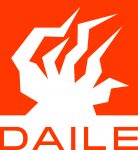
Co-financed by the Ministry of Culture and National Heritage.
